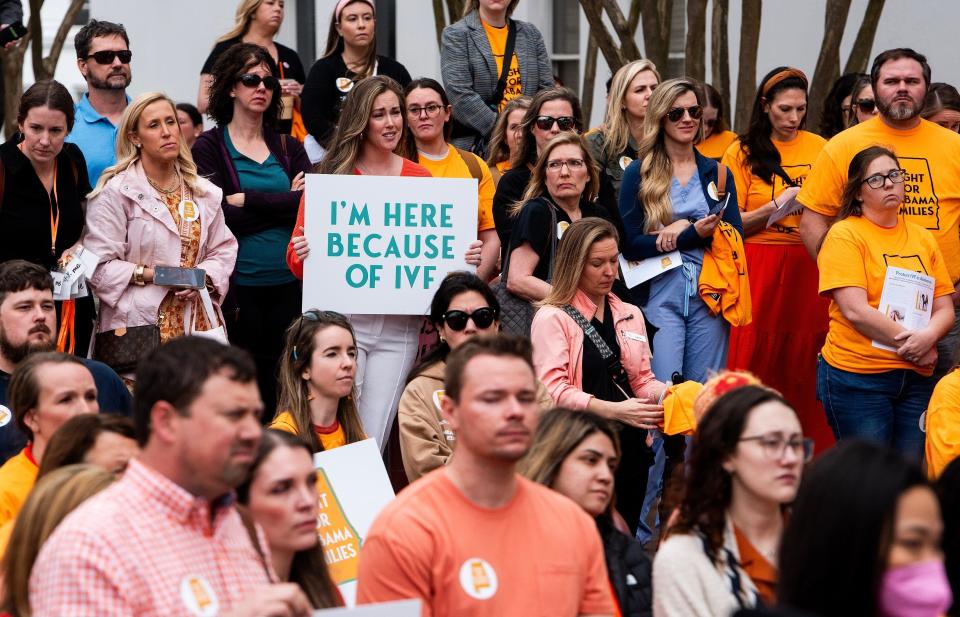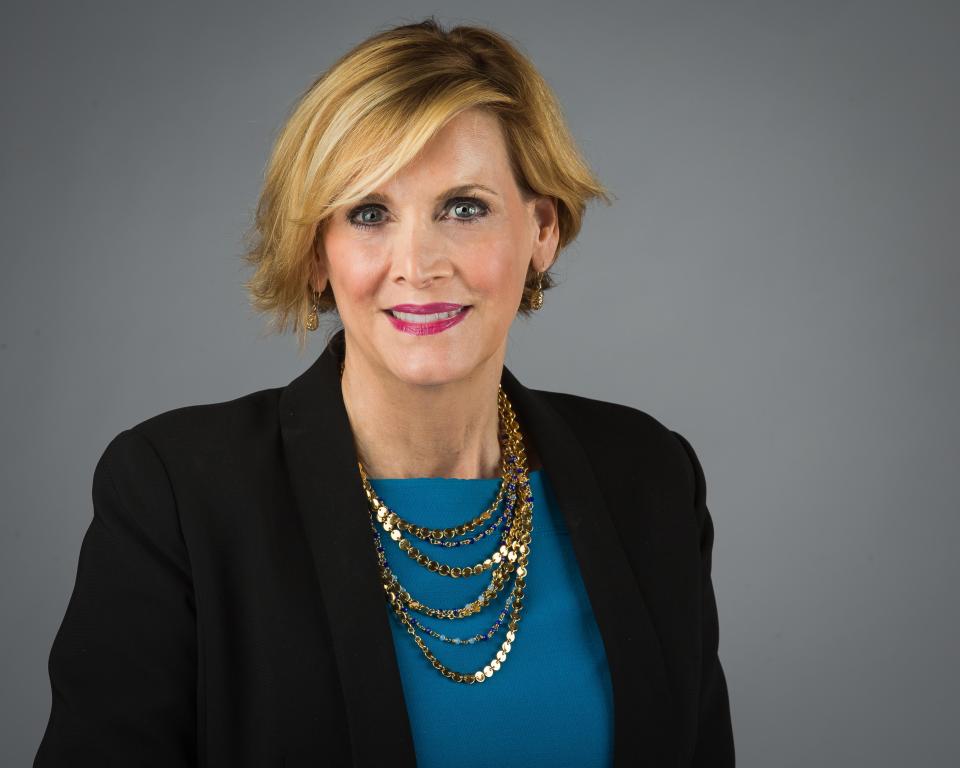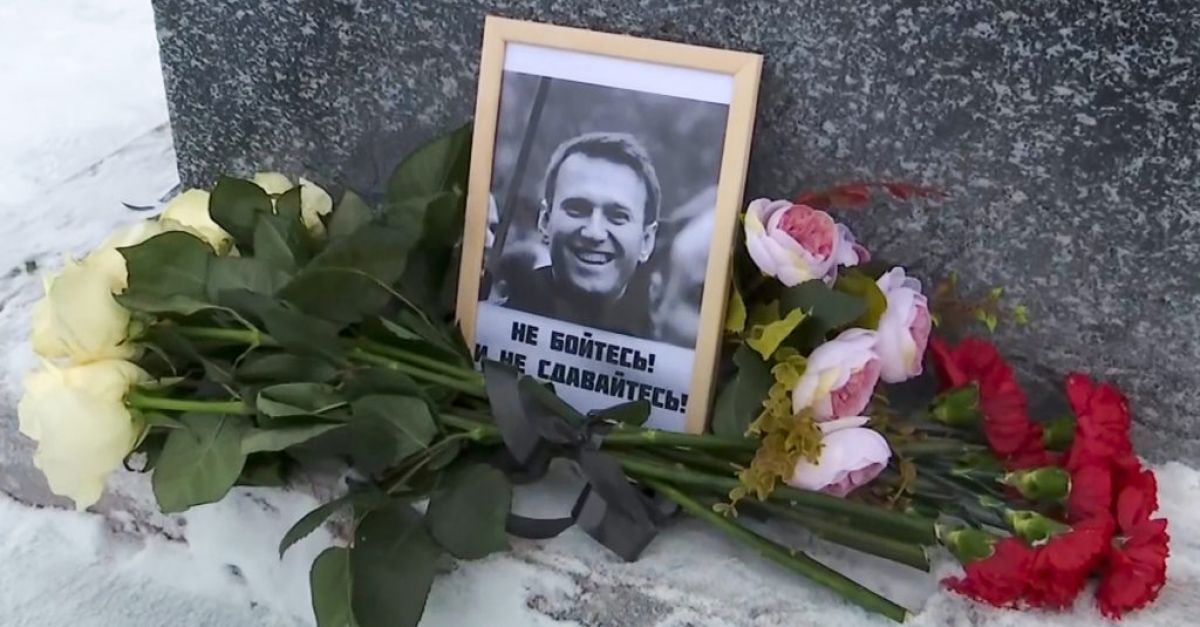The Alabama Supreme Court sent shockwaves through the country in February when it ruled that frozen embryos created through in vitro fertilization are “unborn children” under wrongful death statutes. Afterward, several major fertility clinics shut down until the Alabama Legislature passed a law relieving them of legal liability for embryo destruction or damage.
Now, the Texas Supreme Court is weighing whether to hear a case that experts say could similarly impact IVF access in a state where thousands of IVF babies are born annually.
Whether the justices — all nine of whom are Republicans — decide to take on the lawsuit or not, the case highlights the patchy legal framework that undergirds the multibillion-dollar IVF industry and cuts to the heart of one of the most consequential decisions a parent can make: whether, and how, to have biological children.
More: Does Alabama embryo ruling impact in vitro fertilization in Texas? What you need to know.
At the center of the dispute is a contract that Caroline and Gabriel “Gaby” Antoun signed in 2019, stipulating that all frozen embryos — legally considered property in Texas and other U.S. states — would belong to the husband in case of divorce. (In IVF, eggs and sperm are combined in a laboratory setting, then left to develop for several days before being frozen as embryos.)
The former couple was in the thick of divorce proceedings in June 2022 when the U.S. Supreme Court dismantled the nationwide right to an abortion established in Roe v. Wade. About two months later, after a trial court upheld the contract, Caroline Antoun challenged the ruling on the embryos, and after the 2nd Court of Appeals affirmed long-standing legal precedent classifying embryos as property, she appealed to the Texas Supreme Court.
In their petition for review, Caroline Antoun’s lawyers argued that embryos are unborn children under the state’s new abortion bans and that as such custody proceedings should determine which parent has rights over frozen embryos — and not contracts specifying property division.
“Now that Roe is no longer law, the Court has the opportunity to reclassify embryos as unborn children rather than property, and to, after far too long, recognize and protect the rights of those unborn children and their parents,” states the petition, filed in September 2023. The lawyers did not respond to the American-Statesman’s request for comment.
The state’s high court has not yet rejected the case, nor has it scheduled a hearing for oral arguments. However, in December 2023 it requested merit briefs, indicating at least three justices said they were interested in potentially taking up the matter, and friend-of-the-court briefs have been filed this year in support of both sides.
More: Texas GOP committee considers IVF restrictions at convention: ‘Maybe a later fight’
In an interview with the Statesman, Caroline Antoun said her motivation for the case has nothing to do with the politics of abortion. Rather, she feels people should be more informed about what IVF contracts mean and be afforded the opportunity to have parental rights over a child born from embryos containing their genetic material. (Under the contract she signed, Caroline Antoun would have no parental rights to children born from the embryos currently under dispute.)
“I would be doing this whether Dobbs happened or not,” she said, referring to the decision in Dobbs v. Jackson Women’s Health Organization, which toppled the precedent set in Roe v. Wade. “I don’t think kids should be considered property.”
Gabriel Antoun’s lawyer, Patrick Wright, argues that Dobbs and current Texas law do not apply to the status of embryos in divorce proceedings. Deciding whether embryos are people “is a legislative function, not a judicial function,” Wright told the Statesman.
Gabriel Antoun and his attorney are urging the court to keep the trial and appellate court’s decisions upholding the contract in place.
“(Caroline and I) were two educated adults who knew what they were reading, and we both made an educated decision,” Gabriel Antoun told the Statesman. “We should respect that contract, otherwise any other contract shouldn’t be upheld.”
While the case remains in limbo, there isn’t an “imminent risk” that IVF embryos will be put in jeopardy, said Elizabeth Sepper, a University of Texas law professor who specializes in health law.
Sepper also noted that the Antouns’ lawsuit is messier than the one in Alabama because it asks the high court to apply statutes in the Family Code that do not specifically address IVF embryos, and because of the contractual aspect.
“Even if I were a highly motivated Supreme Court justice who wanted to make steps toward embryonic personhood, I would not want to touch this case,” she said.
More: Amid Texas abortion ban, Democratic AGs meet in Austin to strategize on reproductive rights

The lawsuit’s contention that a contract should be made invalid because of a new law could also have ramifications that go far beyond IVF, according to Sean Tipton, chief advocacy and policy officer at the American Society for Reproductive Medicine.
“It would potentially undo every contract ever executed in the state of Texas,” Tipton told the Statesman. ASRM submitted a friend-of-the-court brief urging the Supreme Court not to review the case, and to uphold the current classification of embryos as property if it does.
But if the court sets a date for oral arguments, Sepper said, “people should take their embryos out of the state immediately.”
“There’s no reason for them to take this case and side with the respondent (Gabriel Antoun),” she said. “If the Texas Supreme Court takes this case … that would suggest very strongly a move in the direction of embryonic personhood.”
Caroline Antoun said what she is requesting in the lawsuit “should not have a negative effect on IVF and should not prohibit access.”
Sepper, however, believes the added liability to IVF clinics from a personhood decision would cripple the industry.
“A decision that an embryo is a person and has statutory rights under a wrongful death statute or the Family Code doesn’t mean that all reproductive technology is unavailable, but it does mean that it would make it so expensive that it would effectively end it,” Sepper said.
Other groups involved with legislation and litigation over IVF have also raised alarm about the case.
The case has the potential to backfire, said Sarah London, an attorney at Lieff Cabraser Heimann & Bernstein who represents families in individual and class action lawsuits against fertility clinics.
She cited a law the Alabama Legislature passed after IVF clinics closed after the state Supreme Court decision that provides civil and criminal immunity to clinics for “death or damage to embryos,” leaving the state with fewer protections for parents undergoing IVF than they had before the ruling.
“We don’t want to see consumers’ rights taken away,” she said. “We should focus on common-sense regulations.”
She said IVF is already a “largely unregulated industry,” making it difficult for families harmed by clinics’ failures — such as equipment issues that lead to embryos being destroyed — to seek justice.
Whether the court takes up the case or not, Caroline Antoun said she plans to fight for new laws around IVF in Texas. She feels, for example, that parents should undergo counseling so that they understand the implications of the contracts they’re signing.
She also said she encourages people to look at the situation with empathy, instead of seeing it as a political battle.
“IVF is the most pro-choice and pro-life thing you can do,” she said. “I hope we can have some kind of bipartisan agreement, if we can get past our pro-choice and pro-life views.”
Gabriel, for his part, wants the litigation to end. He worries that a ruling that embryos should be divided under custody agreements would lock them into years of further legal disputes.
“If I start thinking about that,” he said, “I’m going to lose way more sleep than I am right now.”
This article originally appeared on Austin American-Statesman: Divorced Texas woman is asking state Supreme Court to consider IVF embryos children
Signup bonus from





